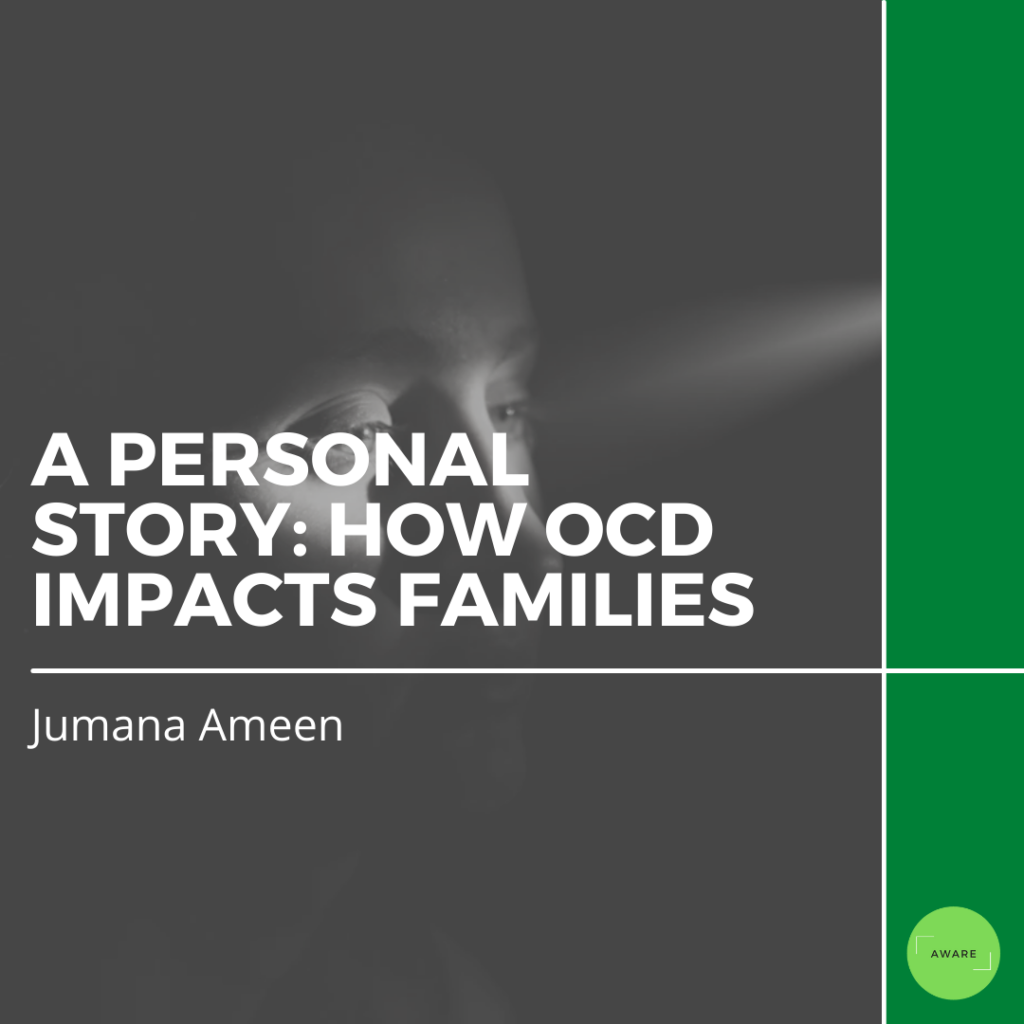Trigger warning: this article discusses a mental disorder.
The lives of parents revolve around their children from the moment they are born, constantly looking for hazards in order to protect their children from harm. Unfortunately, some things are out of their control. Hence, when this occurs, watching a child suffer makes one feel awful and being unable to reduce such suffering leaves them utterly hurt. Such reflects the story of families in which a child suffers from a mental health disorder. The story told today is by a parent whose child is diagnosed with OCD.
What it is like having a loved one suffer from OCD?
To see your child suffering that way and not knowing what is wrong really hurts, especially before they are diagnosed. The symptoms are not always obvious or clear, which can be very confusing. You feel pity for your child. You wish there was something you could do to ease their pain and, more than anything, you wish you knew how to help them because they are your child, and you want to do anything for your kid. You would rather suffer from it than have them go through it. Seeing your bright child disappear and go quiet breaks your heart. When they apologize again and again for something out of their control, it leaves you feeling worse. All you want to do is help them overcome their issues. What is worst of all is that you often feel responsible as a parent, pondering where you went wrong. Had you not let your child push themselves that much, would it be different?
What is not known about OCD?
People often have no idea at all that their child is suffering until very late, as the symptoms of OCD differ from person to person. The quicker you deal with OCD, the less severe the consequences would be. OCD is a disorder that often runs in families. This particular family had a loved one suffer from OCD previously where different doctors were addressed about the case before the child had to be put on medication for life due to the severity of the case because of the delayed identification of OCD. Hence, when a similar case arrived in the family, it did not take long for them to figure out it was OCD and, as a result, CBT and counseling have been used to help the child. For patients with OCD, they need to be spoken to in a certain way such that you do not trigger their disorder any further. Generally, people think OCD is focused on a compulsion to be clean and wanting to have everything look perfect. Although these may be some of the symptoms, OCD is way broader. It can also be the repetition of actions, wanting to talk perfectly, and the repetition of words. Another thing that is not talked about is the expense. Therapy is very expensive and, unfortunately, most insurances do not cover the expense of mental health disorders. CBT, which is very effective in aiding OCD, costs around a whopping 875 AED for each 50-minute session. For those familiar with mental health disorders, one session is not enough. In fact, multiple are needed. The family quoted how they “found it very hard to book a session with a mental health professional qualified in CBT, as they are fully booked, and a cancellation is what worked out” in their favor.
How has it impacted your lifestyle?
You see your child become less and less independent, especially with schoolwork. Prior to OCD, they never needed help and always scored incredibly well but OCD causes them to get stuck on certain letters such that they are unable to get through a sentence, repeatedly reading it. However, they can be helped by having someone read it to them. Normally what would have taken them an hour takes a day now to comprehend due to the OCD. This family describes how their child “could no longer hold normal conversations due to the repetition of his words such that the meaning of the conversation would fade. He would repeat words in order to get the story told perfectly but would defeat the purpose of it. Triggered embarrassment caused him to just stop talking and his bubbly self became quieter. Moreover, he would constantly apologize for the repetition.” It is a painfully slow process and takes time, especially when you are trying not to get medication involved. “To be honest, there are a number of techniques to treat OCD and experimenting is what led us to believe CBT is the best, especially as there is no handbook for parents as to what the best treatments are. I used to cry every night seeing my child suffer. It filled me with a sense of helplessness.”
What do you think may aid you?
A lot of the times, people – especially those who have been through something similar – do not share it, which is common within the Middle East due to this stigma that mental health is something that should be frowned upon. People often hide their experience. If there were more resources with clear-cut information for parents on how to talk to them, how to reassure them, and, most of all, more stories of people who have dealt with OCD, it would help parents help their children.
